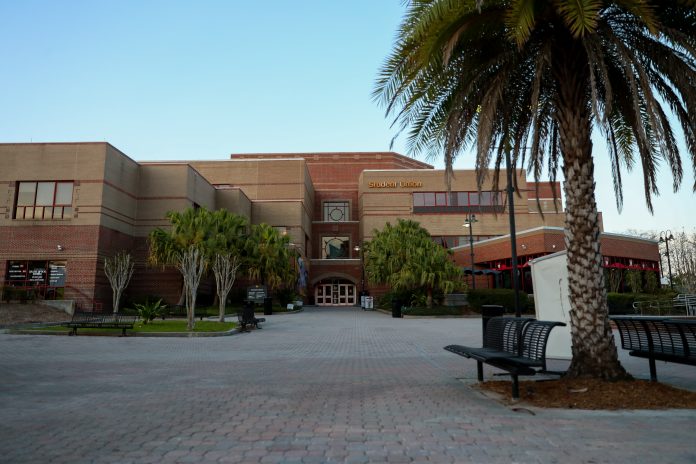UCF is operating under the assumption COVID-19 will not prevent students from returning in fall, UCF President Alexander Cartwright said at the end of April.
“We also are planning for other scenarios that involve a later start for face-to-face classes,” he said. “I expect we will decide on the fall semester in June, and we will share that update with you.”
In a Board of Trustees meeting, UCF’s new president outlined the three scenarios the university is planning for. Cartwright said these scenarios should be viewed as reference and guidance for all circumstances UCF could face.
Scenario 1
Rapid and Effective Control — Best Case
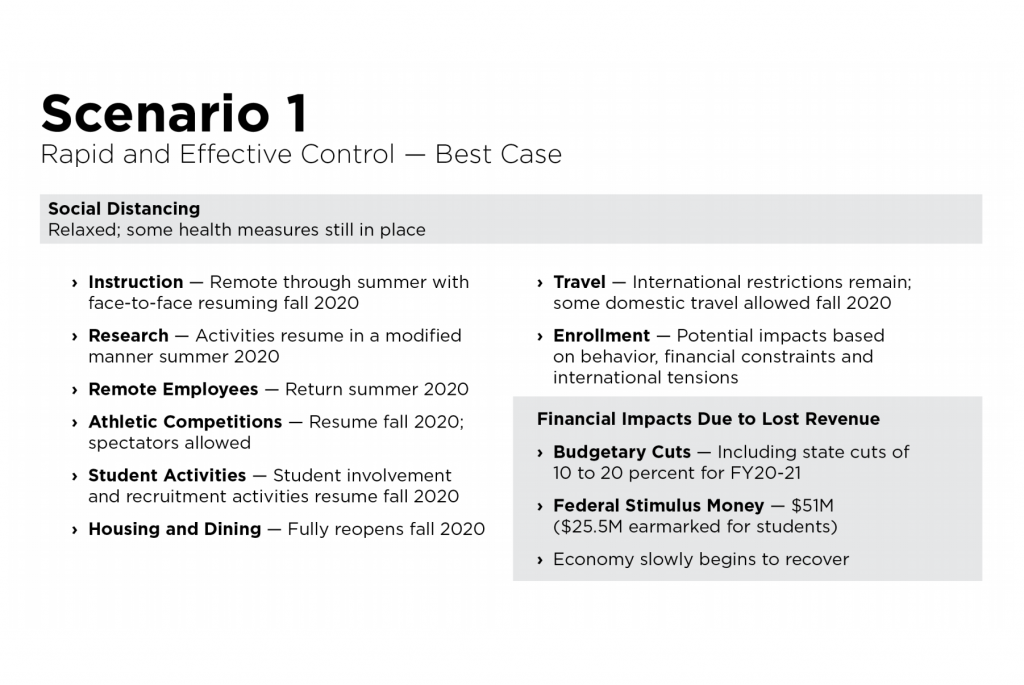
“Scenario 1 is the best case,” Cartwright said during the April 23 Board of Trustees meeting. “Scenario 1 is where we believe we have rapid and effective control, that there is some relaxing of some social distancing, face-to-face can resume, internships and clinical can all be happening.”
In Scenario 1, athletic competitions would potentially resume in fall with spectators, housing and dining would fully reopen, and student involvement and recruitment activities would resume, according to the Board of Trustees presentation.
Scenario 1a
Effective Response
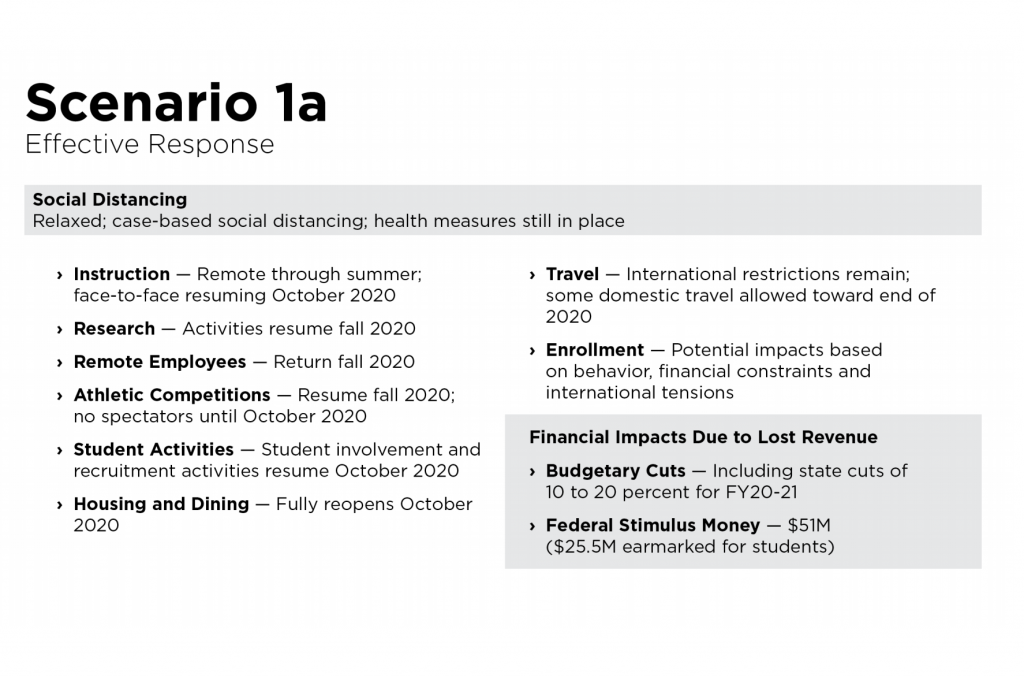
In Scenario 1a, remote instruction would continue as planned through summer and face-to-face classes resume in October, according to the presentation documents.
“This delays some of the opening until later, so if our peak is shifted we might be a little delayed relative to others in terms of when we are opening,” Cartwright said. “That has implications for us also.”
In Scenario 1a, athletic competitions would potentially resume in fall with no spectators until October, housing and dining would fully reopen in October, and student involvement and recruitment activities would resume in October.
Scenario 2
Virus Recurrence — Best Case
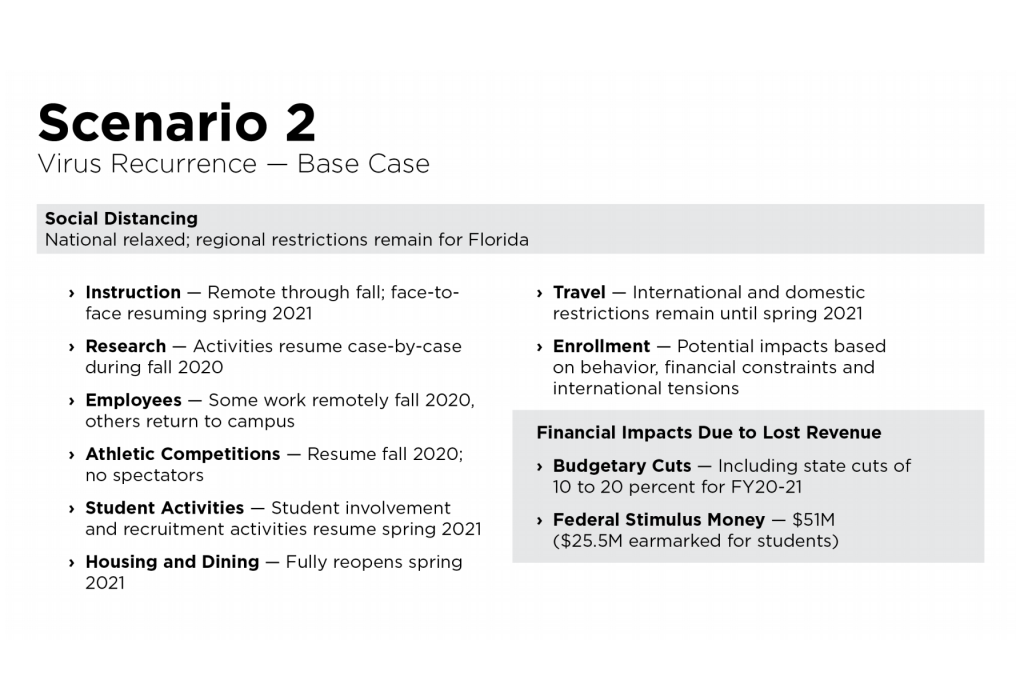
In Scenario 2, remote instruction would continue through fall and face-to-face instruction would resume in spring 2021, Cartwright said during the meeting on April 23.
“What happens here is that we aren’t able to be face-to-face until spring 2021,” Cartwright said during the virtual meeting. “That then means we need to be thinking about phased-in ways of bringing people back to campus, and how does that work.”
In Scenario 2, athletic competitions would potentially resume in fall with no spectators, housing and dining would fully reopen in spring 2021, and student involvement and recruitment activities would resume in spring 2021, according to presentation documents.
Scenario 3
Pandemic Escalation — Worst Case
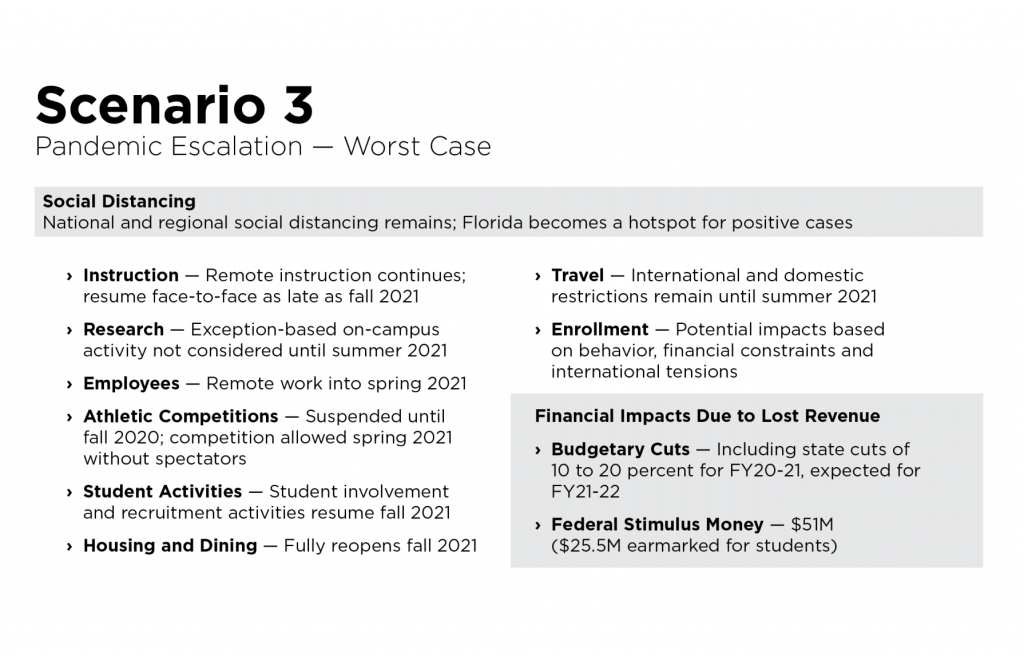
Scenario 3 is labeled as “worst case” — or in a situation where the coronavirus pandemic escalates.
If Florida becomes a hotspot for positive cases of COVID-19 — and national and regional social distancing remains — Cartwright said the university needs to be prepared for the significant impacts it may face.
In this scenario, remote instruction would continue and face-to-face instruction would resume in fall 2021, according to meeting documents.
In Scenario 3, athletic competitions would potentially be suspended through fall and resume in spring 2021 with no spectators.
Housing and dining would fully reopen in fall 2021, and student involvement and recruitment activities would resume in fall 2021, according to the Board of Trustees presentation.
Which scenario is UCF leaning toward?
Cartwright said there are numerous factors to consider at the university, local and state-level before bringing students back to campus.
“We are operating under the assumption that we will open in the fall unless we have data that says to us that things have become out of control and we can’t,” Cartwright said in the virtual meeting. “Right now, we want to move forward with the assumption that we will be on campus in the fall.”
Maribeth Ehasz, vice president for student development and enrollment services, said in a Monday announcement the university continues to discuss plans for the fall term.
“We know you have many questions about what campus life will look like in the fall,” Ehasz said in the statement. “… while we don’t have all of those answers right now, we are engaged in discussions about those services and activities …”

